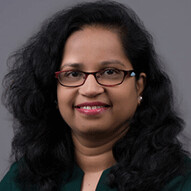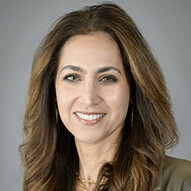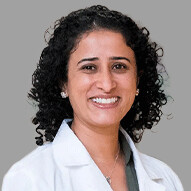Pediatric first unprovoked seizure
About 1 in 20 children experience a seizure. Most children never have a second seizure. However, if your child has more than one seizure, it could be a sign of a more serious medical condition or epilepsy.
The experts at Children's Health℠ provide our region’s most advanced care, therapies and procedures for children with seizures. Our Dallas and Plano epilepsy centers are nationally recognized for their quality of care, meaning that your child will get the most advanced care possible.
What is a pediatric first unprovoked seizure?
A seizure is a sudden, uncontrolled electrical disturbance in the brain. Usually, the neurons in the brain send out electrical impulses to communicate with each other and with other parts of the body. These electrical impulses control everything in the body, including movements and senses. But when too many neurons send out impulses at the same time, the brain is overloaded with electrical activity. That’s when a seizure can occur. This can cause abnormal movements, changes in behavior, loss of consciousness or loss of awareness.
“Unprovoked seizure” means the seizure wasn’t caused by a specific event, like a head injury or infection. We know that watching your child have a seizure can be terrifying. But keep in mind, less than half of children who have one unprovoked seizure will develop epilepsy. Your child can only be diagnosed with epilepsy if they have two unprovoked seizures.
What are the signs and symptoms of a pediatric first unprovoked seizure?
There are more than 40 types of seizures. The symptoms depend on the type of seizure.
Here are some common symptoms:
Eyes rolling back or becoming "locked" to one side
Rhythmic twitching of one part of the body or whole-body convulsion
Repetitive movements such as chewing, lip smacking or clapping
Sleepiness and confusion
Staring or unresponsiveness
How is a pediatric first unprovoked seizure diagnosed?
Either the emergency department or your child’s pediatrician could give you a referral to see a neurologist about your child's seizures. A neurologist is the type of specialist who will determine if your child has epilepsy.
A neurologist will give your child a detailed physical and neurological exam and ask you about your child’s past medical history, your family’s medical history, and about what you have noticed about your child’s behavior and their seizures. Since there are more than 40 types of seizures, it’s helpful to provide as much information to your neurologist about the seizure.
This includes:
How long it lasted
What your child was doing during the seizure
Unusual spells that could have been unrecognized seizures in the past
Other tests
Electroencephalogram (EEG) - Used to find where in the brain the seizures are coming from. An EEG is performed by placing electrodes on the scalp and recording the electrical activity of the brain.
MRI - Imaging that takes a detailed image that can identify changes in your child's brain and may identify a cause of their seizures.
Genetic testing - This may identify a specific type of epilepsy and help guide treatment and long-term prognosis.
How is a pediatric first unprovoked seizure treated?
A first unprovoked seizure should always be evaluated by a medical professional, either in the emergency department or pediatrician's office.
Pediatric first unprovoked seizure doctors and providers
Our experienced team of neurologists can provide the expert care and treatment your child might need.
 Nayana Prabhu, MDPediatric Neurologist
Nayana Prabhu, MDPediatric Neurologist Rana Said, MDPediatric Neurologist
Rana Said, MDPediatric Neurologist Deepa Sirsi, MDPediatric Neurologist
Deepa Sirsi, MDPediatric Neurologist